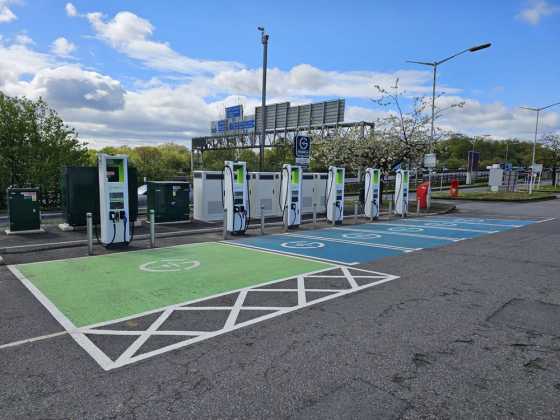Van drivers feel less stressed when driving an electric van

A new study by Fiat Professional has revealed the quieter driving cabin of an electric van makes drivers feel less stressed when compared to driving a traditional ICE vehicle.
The Van Delivery Stress Test was commissioned to gain a greater understanding of the physiological and psychological impact on drivers when comparing the different levels of cabin noise in an electric and internal combustion engine light commercial vehicle.
Fiat Professional carried out the trial in conjunction with leading psychoacoustician, Dr Duncan Williams, formerly of Oxford University, to mark the recent arrival of its first fully electric van, the E-Ducato.
The findings were released ahead of World Mental Health Day on October 10th to raise awareness of the mental and physical impact excessive noise can have on human health as around 100 million people in the EU are negatively impacted by road traffic noise pollution.
Focusing on the noisiness of the cabin and its link to stress, drivers’ biometric responses reported the E-Ducato as being less stressful than its ICE counterpart.
Overall, it found drivers produced significantly lower levels of sweat, had a lower heart rate and lower body temperature when compared to the ICE van.
Drivers also reported marginally lower levels of stress when answering the Perceived Stress Questionnaire for the electric E-Ducato. Some of the comments stated the all-electric version had “very low in-cabin noise levels”, and no “noticeable sound or engine noise”. Other respondents added that the EV was “quieter, which I like” and “more peaceful to drive”.
Interestingly, drivers’ biometric markers suggested higher levels of stress than reported in the questionnaire, indicating drivers physiological stress indicators were higher than their perceived level of stress.
Acoustically, the diesel engine was 10dB louder than the E-Ducato – nearly four-times the volume of the electric van – which is approximately the difference between someone talking from one metre away versus shouting from the same distance.
The diesel was also 55 per cent sharper than its EV twin. In the field of psychoacoustics, sharpness and shrillness are commonly associated with how annoying a noise is considered, with there being a logical correlation between annoyance and stress. A common example of a sharp, shrill sound is the sound of nails on a chalkboard.
Dr Duncan Williams, Psychoacoustician, said: “We already know that noise on the roads is a real problem for people who aren’t part of the traffic but finding out how drivers respond behind the wheel is still very new territory
“The results clearly show, especially the readings from the smart watch, a strong correlation between the quietness of the E-Ducato and lower levels of stress in comparison to an ICE van.
That said, while the diesel was louder, a number of the participants found it to be a comforting and more familiar sound with a perceived level of stress only a fraction higher than the electric van.
“It’s a fascinating result and, given the movement towards electric commercial vehicles, shows there are potentially more benefits to van drivers going electric beyond things like cost saving on fuel.”



